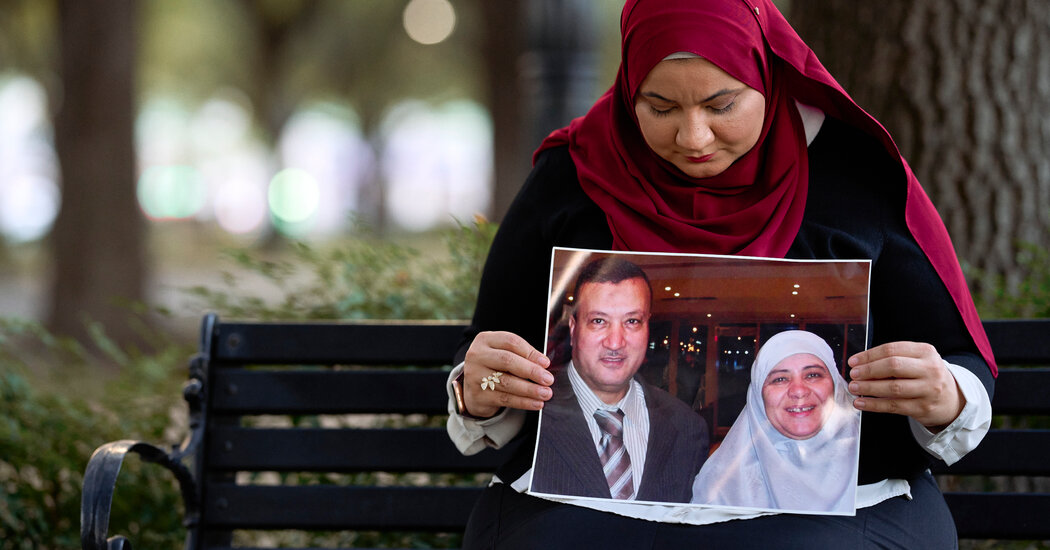
For a time, Mr. Abd El Fattah shared a prison complex with a former presidential candidate, 71-year-old Abdel Moneim Aboul Fotouh, who suffers from conditions the United Nations has called life-threatening, including angina, prostate disease and kidney stones. He has received almost no medical attention apart from basic tests, the U.N. said.
But the authorities do not reserve such treatment only for prominent prisoners.
His Crime? Protesting
Ahmed Abdelnabi and his wife, Raia Hassan, boarded a flight from Cairo to Istanbul in December 2018. Their daughter, Nosayba Mahmoud, said they were planning to stop in Turkey on their way to visit her in Dallas.
But in Istanbul, they never got off the plane.
Three frantic weeks later, the family heard that a defense lawyer had spotted the couple at an Egyptian prosecutor’s office. Security officers had arrested them before takeoff.
When Ms. Sallam, Mr. Abdelnabi’s lawyer, got to see him, she reported that he had trouble moving the left side of his body, which was covered in red, raised burns from repeated electric shocks, and that he could barely see.
“Just the idea that they weren’t taking their medications, they were under this tremendous psychological pressure, that they weren’t eating, not taking a shower, not changing their clothes, let alone that you don’t know where they are and what’s happening to them — it’s traumatic,” said Ms. Mahmoud, 37. “You don’t know if your loved ones are going to make it out or going to be killed.”
Requests for comment sent to the Egyptian state prosecutor, prison officials and the presidency through a government spokesman received no response. But officials have said some politically motivated arrests were necessary to restore stability after the turbulence of the 2011 Arab Spring revolution.




